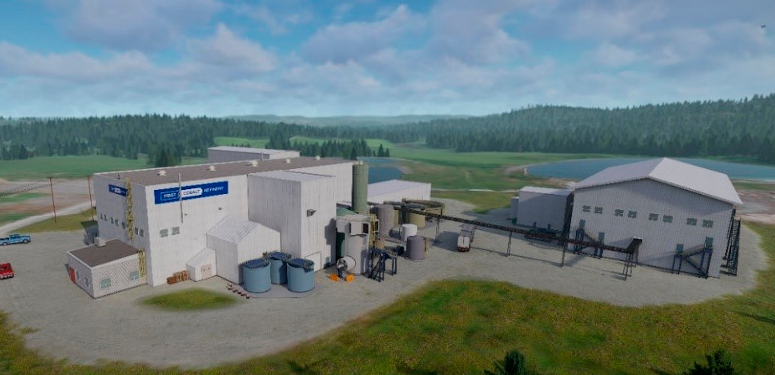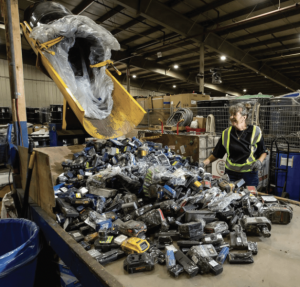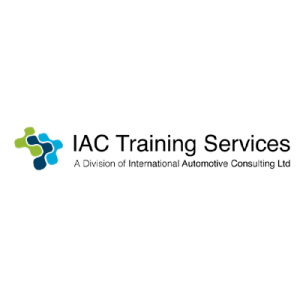Toronto, Ontario — First Cobalt has begun a study of “black mass” material from recycled batteries as a supplemental source of feed for its hydrometallurgical refinery north of Toronto.
The company said it believes the refinery could recover cobalt, nickel, copper, and potentially lithium and manganese—in addition to planned cobalt production from primary feed. Discussions are underway with several producers of black mass.
First Cobalt is currently in the preconstruction phase of its refinery expansion project that will result in annual production of 5,000 tonnes of cobalt contained in a battery-grade cobalt sulfate, starting in the fourth quarter of 2022. The refinery previously recovered nickel, copper, and cobalt.
The company said the study will leverage these processes and existing infrastructure. Incremental capital costs to modify the flow-sheet to treat black mass and recover other battery raw materials are expected to be substantially lower than a greenfield project.
Closed-loop recycling of lithium-ion batteries will serve the electric vehicle market in North America and Europe and in the short term will benefit from the higher availability of cobalt-rich consumer electronics, said First Cobalt.
“This initiative advances our vision of producing the world’s most sustainable cobalt while broadening the potential revenue streams to include other battery materials,” said CEO Trent Mell in a statement.
“Automakers are looking for a closed-loop supply chain for their batteries and the proposed recycling process at the First Cobalt Refinery presents a compelling solution to move to a circular model for recycling end-of-life batteries and battery manufacturing scrap.”
“Pursuing this project in tandem with the current cobalt sulfate production circuit would yield much lower capital and operating costs than a standalone greenfield recycling plant. Our hydrometallurgical process is expected to be more efficient and better for the environment than many of the established recycling processes.”



























